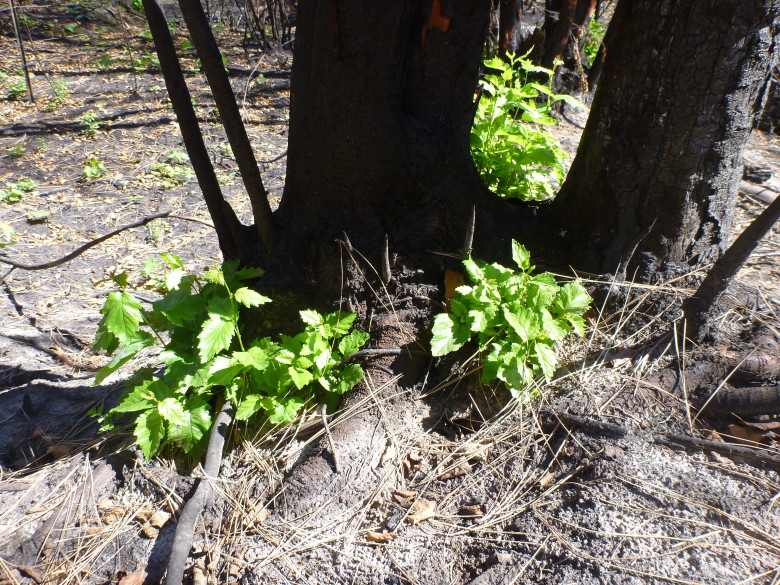Field Trip: Explore Wildlife Response and Ecosystem Recovery -Carlton Complex Fire
Sat, Sept 13, 10-5pm, 2014
 There has been great concern expressed about the impact of this summer’s Carlton Complex wildfires on the wildlife that make the Methow Valley their home. Over 256,000 acres burned in the main fire complex with 65% of that within the Methow River watershed. Most of the burned area was important wildlife habitat to numerous species, and Pacific Biodiversity Institute (PBI) has launched a more in-depth, field-based study to determine the extent of the impacts to wildlife and their habitat. The good news is that we are receiving many reports of sightings of wildlife that did survive the fire. And the other good news is that you can help us with this important assessment of impacts and investigation of how people in the Methow can help our wildlife recover from this devastating wildfire.
There has been great concern expressed about the impact of this summer’s Carlton Complex wildfires on the wildlife that make the Methow Valley their home. Over 256,000 acres burned in the main fire complex with 65% of that within the Methow River watershed. Most of the burned area was important wildlife habitat to numerous species, and Pacific Biodiversity Institute (PBI) has launched a more in-depth, field-based study to determine the extent of the impacts to wildlife and their habitat. The good news is that we are receiving many reports of sightings of wildlife that did survive the fire. And the other good news is that you can help us with this important assessment of impacts and investigation of how people in the Methow can help our wildlife recover from this devastating wildfire.
On Saturday, September 13, we invite you to join us on a field trip into various parts of the burn area to examine how some areas with particularly high concentrations of wildlife responded to the fire. Katrina Fisk, a conservation biologist from the University of Washington studying ponderosa pine forest ecosystems and their wildlife with PBI, and Peter Morrison, a forest ecologist and fire expert, will lead the field trip and help interpret what we see. We will be looking at how the birds, mammals and plants responded to the fire. We will explore ponderosa pine forests, riparian areas and shrub-steppe vegetation.
The field trip will start in Twisp at 10 AM and we will carpool from there. We will meet at Hanks Foods parking lot on the north side (next to Hwy 20). Bring water, a field lunch, and sturdy running shoes or hiking boots. Bring a camera, binoculars, and field identification guides if you have them. Bring clothing appropriate for the weather. We will return to Twisp by 5 PM at the latest. The field trip is free, but you might want to bring a few dollars to share with a driver, so we can split the cost of gas.
The field trip will provide a good introduction to several wildlife research methods including the use of wildlife camera traps (for all wildlife species), hair tubes (for squirrels and other native rodent species), field observations via binoculars and photography, and field assessment of burn severity, ecological condition and ecosystem attributes. If you find this kind of activity rewarding, PBI is looking for volunteers that can join our research work assessing the response of wildlife in the burn area as citizen scientists through the rest of the summer, fall, winter and following spring and summer of 2015. We will offer additional training and orientation events, however the Sept. 13th field trip is a great place to start.
DATE: Sat, September 13, 10-5pm CONTACT: RSVP to Pacific Biodiversity Institute at 509.996.2490 LOCATION: Meets in Twisp